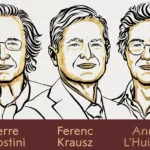The youngest contender in Wednesday’s debate didn’t win favor with fellow Republican candidates. He criticized their morals, mocked their pledges, and claimed his lack of government experience made him the ideal problem solver.
For Vivek Ramaswamy, this was familiar ground.
Back in 2015, at just 29 and fresh from Yale Law School, he brought a similar boldness to biotech. His company, Roivant, aimed to outshine industry giants like Pfizer and Merck. He aimed to unveil hidden values in medicines they overlooked due to bureaucracy, claiming it’d be the “highest return on investment endeavor ever taken up in the pharmaceutical industry.”
But like at the recent debate, Ramaswamy divided opinions. Some saw him as an industry visionary while others called him a profiteer riding the biotech boom for personal gain. One MIT business professor in 2016 expressed skepticism, saying, “This sounds like some people are being bamboozled.”
His initial confidence was tested when an Alzheimer’s treatment from obscurity failed in a major clinical trial, erasing $2 billion in value. Critics said Roivant’s model was too clever by half. Ramaswamy admitted personal humbling but vowed to learn from failure.
By 2021, he transitioned from CEO to executive chairman. Roivant became less disruptive and more like a standard drug firm. When Ramaswamy left in early 2023 for his presidential bid, Roivant had FDA-approved medicines and several in late-stage development.
Whether Roivant fulfills Ramaswamy’s promise of historic returns remains to be seen. Worth around $9 billion, it drew interest from Pfizer and Merck, the very companies it sought to challenge.
Also Read: Apple’s Latest Patent Confirms Development Of Smart Ring Technology!






